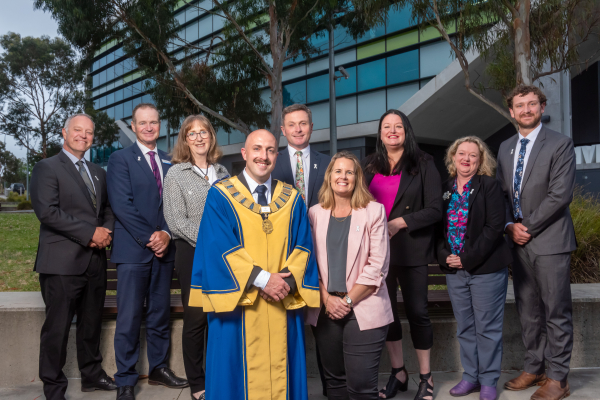The AMA has welcomed Labor’s $2.3 billion commitment to slash costs for cancer patients and help them better cope with the burden of the disease.
In his Budget reply speech, Opposition Leader Bill Shorten made health a central policy feature and unveiled a cancer care package to fund scans, medical treatment, and specialists appointments. It also aims to help regional families have better access to care.
“For so many people, cancer makes you sick and then paying for the treatment makes you poor,” Mr Shorten said.
“A lot of Australians would be surprised to learn that all those vital scans and tests and consultations with specialists aren’t fully covered by Medicare.”
Describing it as the “most important reform to Medicare since it was introduced by Bob Hawke,” Mr Shorten promised the “biggest cancer care package in Australian history”.
“To summarise what our first four years of Labor’s Medicare cancer plan means for Australians – up to six million free cancer scans, three million free appointments with specialists and an affordable medicine guarantee,” he said.
“This is our vision for the future, our vision to build Medicare. We can pay for it and we can deliver it because of our reform decisions. We choose our healthcare system over bigger tax loopholes.”
AMA President Dr Tony Bartone welcomed Labor’s decision to make a significant investment to ease the cancer experience of Australian patients and their families.
“It is a sad reality that every Australian is touched by the scourge of cancer, directly or indirectly, through their own experience or that of a family member, neighbour, colleague, workmate, or loved one,” Dr Bartone said.
“Easing the financial burden of many cancer patients and families will help them focus on the primary challenge of treatment and recovery.”
The AMA will now consult with Shadow Health Minister Catherine King on the finer details of the policy and exactly how they affect patients and their doctors.
“There are key elements of this policy that accord with AMA policy,” Dr Bartone said.
“The AMA has for many years lobbied successive governments that Medicare patient rebates do not reflect the true cost of providing high quality care, and this has certainly been the case with cancer consults, treatments, scans, and tests. The Labor plan fundamentally acknowledges this.
“We support the evidence-based listing of life-saving and life-improving medicines on the Pharmaceutical Benefits Scheme (PBS) for cancer patients and other conditions. Both the Government and Opposition support the PBS.
“And the AMA has called, as recently as in our Budget Submission 2019, for all MRI machines to be eligible for Medicare rebates, if they meet appropriate standards.”
Dr Bartone said it was pleasing that Labor had committed significant investment to an important segment of the health system, and the AMA looks forward to more announcements regarding the broader health system throughout the election campaign.
“This is a great start, but we need to take a much more universal, whole-of-health view of the system that also looks at primary care, mental health, Indigenous health, aged care, prevention, and other neglected parts of the system,” he said.
Following Mr Shorten’s address, Finance Minister Mathias Cormann criticised the commitment and questioned whether Labor would deliver it if it did form government.
“We (the Coalition) have made significant investments in better treatment and better access to high-quality medicines for cancer patients across Australia,” Senator Cormann said.
“What I would point out is that when Labor was last in government, not only did they deliver $240 billion in total deficits over a six-year period, they also stopped listing medicines, recommended medicines on the PBS because they ran out of money, literally.
“They delayed the listings of key medicines, including for cancer treatment, until fiscal conditions permitted. So, I mean our track record is one where we have listed $10 billion worth of new medicines on the PBS. About 2,000 new medicines. Many new medicines for cancer treatment. We are always doing as much as we can in relation to all of this very important and essential services that Australians rely on.”







